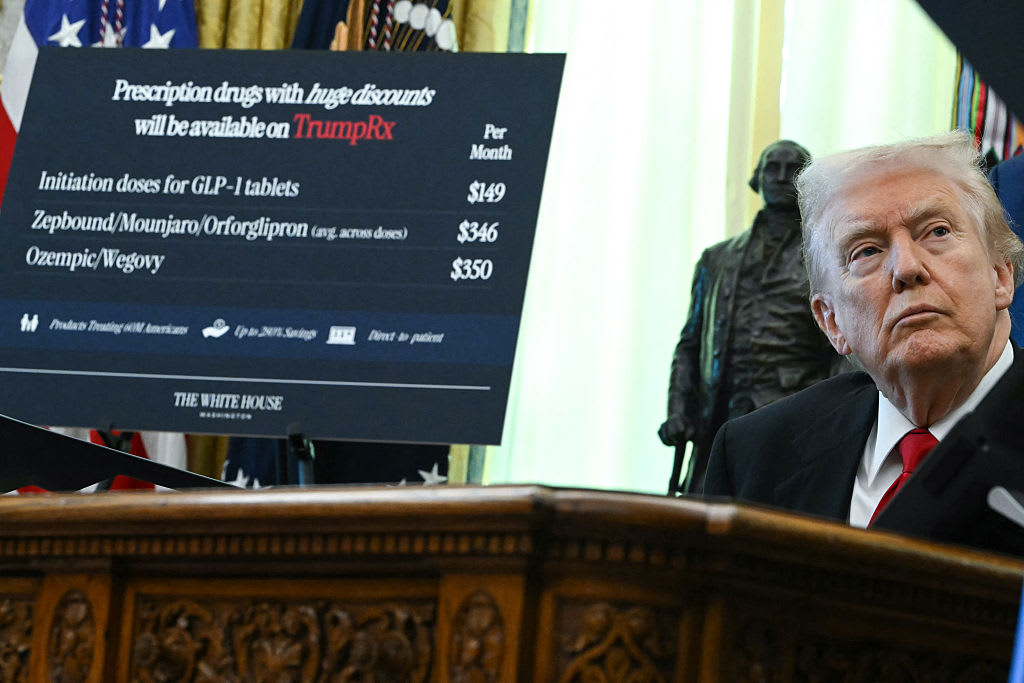How Trump's next tax cut would boost America's richest
The Trump administration is said to be considering a tax break that would bypass Congress, delivering $102 billion in cuts to wealthy Americans who own investment assets.
The Treasury Department is mulling whether it could use its authority to connect capital gains tax liabilities to inflation, as reported by The New York Times. This method would shield more of the gains from taxation because the initial cost of the asset would be adjusted upward to account for inflation over the time period between buying the asset and selling it.
Such a change would provide a major tax benefit to wealthy Americans. By one estimate, two-thirds of the $102 billion in cuts would be enjoyed by the top 0.1 percent of America's income earners. Households in the bottom to 40th percentile of income earners would see no benefit, while those in the 40th to 80th percentiles -- the middle class -- would see just 1 percent of the benefit.
"This is just another juicy tax cut for the wealthy, and I say that very honestly," said Alexandra Thornton, senior director of tax policy at the Center for American Progress. The tax code already "is slanted toward those who hold their income in the form of capital as opposed to salaries and income."
Capital gains are taxed at a lower rate than earned income, partly on the theory that the lower tax rate helps offset the impact of inflation, Thornton said. That's because when an asset appreciates over time, a portion of that gain is due to inflation. A lower tax rate therefore offsets the impact of inflationary gains.
"If you're going to adjust it for inflation, it seems to me that you should raise the tax rate," she said, adding that this side of the argument doesn't appear to be part of the discussion.
Administration officials said Tuesday that Treasury Secretary Steven Mnuchin prefers deferring to Congress on the tax break. But his department is studying the economic impact of such a change and the legality of proceeding without congressional approval.
It's not at all clear whether Treasury has the authority to write rules to create the new tax treatment. And it would likely be challenged in court, with a strong likelihood it would lose the case in the Supreme Court, Keefe, Brunette & Woods analysts Brian Gardner and Michael Michaud wrote in a research note.
The political appetite for such a tax break may be limited, the analysts added. Democrats would certainly not support the plan, especially coming on the heels of the massive tax overhaul signed into law by President Donald Trump in December. That law lowered tax rates for corporations, and critics say most of its benefits are accruing to wealthy shareholders, top earners and corporations.
Hitching capital gains to inflation would benefit America's richest citizens, according to a Wharton School of Business analysis earlier this year.
"Because income from capital gains is concentrated among high-income households, the benefits of this change would accrue primarily to the upper end of the income distribution," John Ricco, senior analyst at Penn Wharton Budget Model, wrote in the analysis.
How it would work
Under current tax law, an investor who buys a stock for $100 a share and then later sells it for $150 must pay capital gains tax on the $50 profit. But under the proposal, the initial purchase price of $100 would be adjusted upward to account for inflation. Say the inflation-adjusted price was set at $120, that would lower the taxable "gain" to just $30. The end result would be a lower tax bill for that investor.
Taxable investments are largely held by older, wealthier Americans. While plenty of middle-class Americans hold stocks in their 401(k) plans, gains on those investments are tax-deferred, but on withdrawal they're taxed as regular income -- not investment income, which means they aren't subject to capital gains tax.
The richest 10 percent of Americans owned 93 percent of all stock and mutual fund wealth in 2016, according to a 2017 study by New York University economist Edward Wolff. That's up from 84.5 percent in 2001. If capital gains are hitched to inflation, it's likely that share may grow even higher.
--With reporting by The Associated Press



